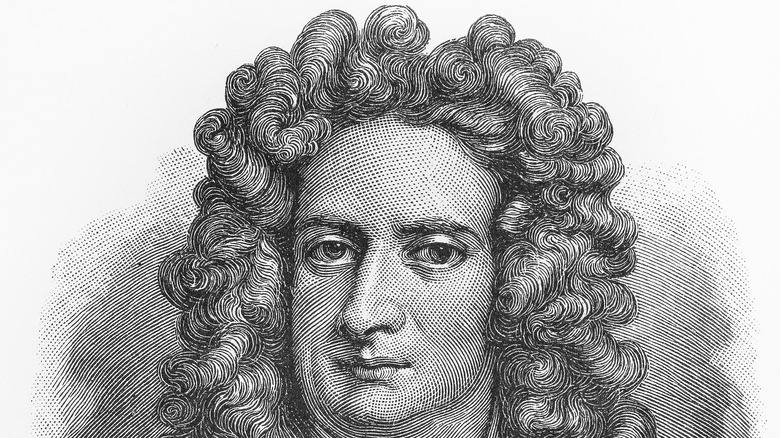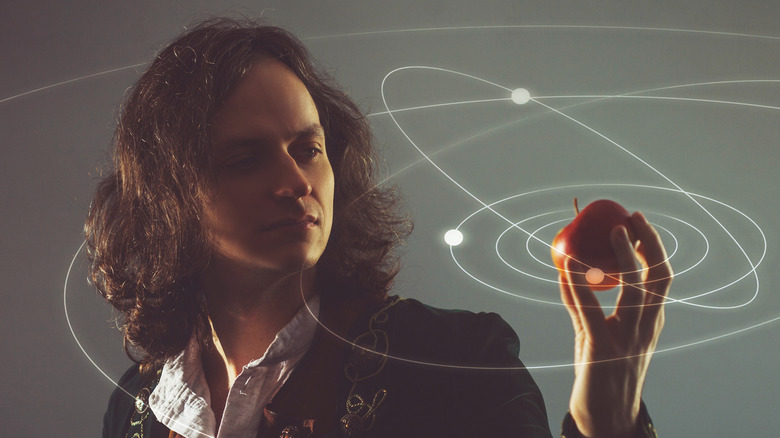How The Great Plague Impacted Isaac Newton's Scientific Career
COVID-19 was not the only time that entire countries found themselves needing to quarantine for long periods of time. It was the only time period, though, that people could entertain themselves with thousands of hours of streaming movies and television shows along with being able to order food and beverages that would be delivered right to their doorstep. Still, history has seen incidents where people found themselves isolated in their own homes for long periods of time ... and one of those was one of humanity's greatest scientists: Isaac Newton.
According to Britannica, Newton was studying at Cambridge University in 1665 when there was a bubonic plague outbreak. Although medicine was far from being as advanced as it is now, people still thought it was a good idea to keep away from each other at the time. So he went back to his home, Woolsthorpe Manor, where he would stay for two years. He displayed more patience than people during the COVID-19 pandemic who would complain about staying at home for two weeks. In fact, Newton greatly benefited from this time alone, making some great breakthroughs in his scientific pursuits. As he once said, "Genius is patience."
Isaac Newton had a fateful encounter with an apple
One of the main discoveries involved that famous apple tree that led to his theory about gravity. For those that don't know, there is a legend that he sat under the tree (which is still alive and cared for, according to National Trust) and an apple fell and bonked him on the head. The validity of that is in question, but he likely found an apple on the ground next to the tree. He was then curious about why it fell straight down and his subsequent research helped understand why we are anchored on this planet of ours. He also worked on the Laws of Motion, work that was so important that physicists still use the newton as a measure of force to this day.
Not content with just those discoveries, Newton also set about learning about the properties of light, and, just for kicks (and to torment many high school and college kids), he also invented calculus (via Britannica). No wonder he is considered one of the greatest minds in human history. Most impressive of all, he did it without having to consult Google once. Although he later went on to do many more studies, including astronomical ones that involved a reflecting telescope, according to the European Space Agency, if we all could be one-tenth as productive as he was in isolation, the world would be a better place.

